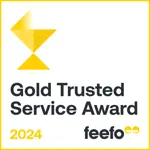OTHM Level 7 Diploma in Data Science
UK Govt Ofqual Approved Course. No hidden fees. Tutorial support included. No Exams only Assignments based
UK Versity Online.
Summary
- OTHM Level 7 Diploma in Data Science - Free
- Exam(s) / assessment(s) is included in price
- Tutor is available to students
Add to basket or enquire
Overview
Overview
The principal objective of the OTHM Level 7 Diploma in Data Science qualification is to develop the knowledge and skills and construct the means for extracting business-focused insights from data. This requires an understanding of how value and information flow in a business and the ability to use that understanding to identify business opportunities. Learners will become competent and reflective practitioners, related to their current role and in preparation for more challenging roles in the future. OTHM has developed a suite of Level 7 diploma qualifications. The qualifications provide learners with industry-specific and practical skills, enabling them to successfully apply their knowledge in the workplace, enhance their career prospects, and allow progression to further study.
Modules
• Data Science Foundations
• Probability and Statistics for Data Analysis
• Advanced Predictive Modelling
• Data Analysis and visualisation
• Data Mining, Machine Learning and Artificial Intelligence
• Advanced Computing Research Methods
• UK Versity will assess the level of English language proficiency if it is not your native language.
Qualification
Certificates
OTHM Level 7 Diploma in Data Science
Hard copy certificate - Included
The certificate will be sent once you have completed all the units and met all the assessments of the course. A hard copy can be ordered from OTHM Qualification, as they have stopped using any hard prints since 1st Feb 2023, under the government e-certificate and digital certification initiative.
Course media
Description
UK Versity is a British Accredited College (BAC) and an independent private higher education institution in the UK. Established in 2015 as an online provider of Ofqual regulated courses, we deliver educational RQF Level 2–8 courses globally using advanced technology from the UK. UK Versity's name is referred to as the home of online learning, as we are the only provider who has delivered over 10,000+ sessions of live teaching that are recorded and available on our YouTube channel. Visit the YouTube channel @ukversityonline to watch live delivery. This course can be studied online on a self-study basis or via live Zoom lectures.
7500+ students have successfully completed their qualifications with UK Versity.
The College provides:
1. Comprehensive course material provided via its learner management system, which includes books per module, presentations for all units, recorded lectures, articles, case studies and handouts
2. Onboarding for studies includes induction via Zoom, covering comprehensive discussions on course overview, systems demos, introduction to tutors, admin team and ongoing support to be able to complete the course
3. Live sessions are conducted via Zoom Meeting on weekends, and learners can join them to interact with lectures
4. Access it 24 x 7 on any device, anywhere in the world
5. Dedicated support via WhatsApp group chat, telephone and email (all week, 9 a.m.–5 p.m)
6. No exams. All coursework is assessed via assignments. Feedback is provided in 2–3 working days.
Who is this course for?
Data Analysts and Data Scientists:
- Experienced data analysts and data scientists seeking to deepen their understanding of advanced data science techniques, algorithms, and methodologies to solve complex business problems and extract actionable insights from large datasets.
- Professionals interested in mastering statistical analysis, predictive modeling, machine learning, and deep learning techniques to uncover patterns, trends, and correlations in data and drive data-driven decision-making in their organizations.
- Analysts eager to leverage big data technologies, data visualization tools, and cloud computing platforms to scale their analytics workflows and address challenges related to data volume, variety, velocity, and veracity.
Business Intelligence Professionals and Analytics Managers:
- Business intelligence (BI) professionals, analytics managers, and decision-makers looking to enhance their analytical skills and leadership capabilities to lead data science initiatives, develop data-driven strategies, and optimize business performance.
- Managers interested in applying data science methodologies and tools to extract actionable insights from structured and unstructured data sources, improve forecasting accuracy, mitigate risks, and identify opportunities for growth and innovation.
- Leaders committed to building a data-driven culture within their organizations, fostering collaboration between data scientists, business analysts, and domain experts, and driving continuous improvement through data-driven decision-making processes.
IT Managers and Technical Architects:
- IT managers, technical architects, and IT professionals responsible for designing, implementing, and managing data infrastructure, platforms, and systems in enterprise environments, seeking to incorporate data science capabilities into their IT strategies.
- Professionals interested in leveraging data science techniques, such as data mining, natural language processing (NLP), and sentiment analysis, to extract insights from structured and unstructured data sources and enhance business intelligence and analytics solutions.
- Managers aiming to optimize data storage, processing, and retrieval processes, ensure data quality and security, and align data science initiatives with organizational goals, regulatory requirements, and industry best practices.
Software Engineers and Developers:
- Software engineers, developers, and programmers interested in expanding their skill set to include data science and machine learning technologies, such as Python, R, TensorFlow, and PyTorch, to develop scalable and efficient data-driven applications and solutions.
- Engineers eager to integrate machine learning models, predictive analytics, and recommendation systems into software products, services, and platforms to enhance user experiences, personalize content, and automate decision-making processes.
- Developers looking to collaborate with data scientists, domain experts, and stakeholders to design and implement end-to-end data pipelines, deploy machine learning models in production environments, and monitor performance and effectiveness over time.
Aspiring Data Scientists and Career Changers:
- Aspiring data scientists, recent graduates, and individuals transitioning into data science roles from other disciplines, such as mathematics, statistics, computer science, or engineering, seeking comprehensive training and practical experience in data science methodologies and tools.
- Career changers intrigued by the growing demand for data science skills and the potential career opportunities in data analysis, machine learning, artificial intelligence, and predictive modeling across various industries and sectors.
- Individuals interested in pursuing a career in data science and looking to build a strong foundation in statistics, programming, data visualization, and machine learning algorithms to secure entry-level positions or internships in data-driven organizations.
Requirements
Entry Requirements
For entry into the OTHM Level 7 Diploma in Data Science qualification, learners must possess:
• An honours degree in a related subject, a UK level 6 diploma or an equivalent overseas qualification
• Mature learners with management experience (learners must check with the delivery centre regarding this experience prior to registering for the programme)
• The learner must be 21 years old or older at the beginning of the course
• UK Versity will assess the level of English language proficiency if it is not your native language.
Career path
Progressions
The OTHM Level 7 Diploma in Data Science enables learners to progress into or within employment and/or continue their further study. Because Ofqual (Office of the Qualifications and Examinations Regulation) has approved and regulated this qualification, learners may be qualified to progress to a Master’s top-up at many universities in the UK and abroad with advanced standing.
Questions and answers
Currently there are no Q&As for this course. Be the first to ask a question.
Reviews
Currently there are no reviews for this course. Be the first to leave a review.
Legal information
This course is advertised on reed.co.uk by the Course Provider, whose terms and conditions apply. Purchases are made directly from the Course Provider, and as such, content and materials are supplied by the Course Provider directly. Reed is acting as agent and not reseller in relation to this course. Reed's only responsibility is to facilitate your payment for the course. It is your responsibility to review and agree to the Course Provider's terms and conditions and satisfy yourself as to the suitability of the course you intend to purchase. Reed will not have any responsibility for the content of the course and/or associated materials.



